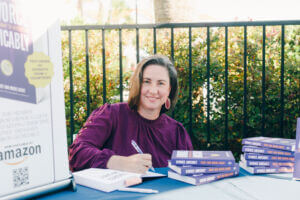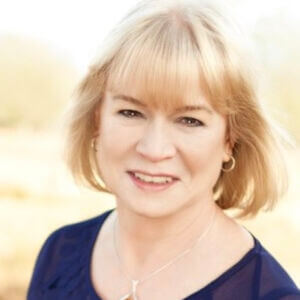Ex Says They Won’t Mediate? – This is how to change their minds
The Peace Delusion in the War of Divorce TEDx AinleyTopWomen
Busting the Peace Delusion: Why Divorce Warriors Need Courage, Not Surrender
When your ex refuses mediation, it's not usually because they want a lengthy, expensive court battle. More often, it's because they've fallen victim to what divorce strategist Suzy Miller calls "the peace delusion"—a persistent belief that choosing peace in divorce means losing out, failing, or appearing weak. In her TEDx talk at Ainley Top Women, Miller draws on her personal experience and professional expertise to reveal why we resist peaceful divorce processes and how to shift that mindset.

Understanding the Peace Delusion
Miller invites us to conduct a simple thought experiment: think of someone you're in conflict with, then imagine a voice suggesting a more peaceful approach. What words come to mind when you think about peace? For many people, the words that surface are "losing out," "failing," and "being weak." This automatic association creates a powerful barrier to mediation and collaborative divorce processes. Even Miller herself, despite knowing from personal experience that peaceful divorce works, admits these thoughts still arise. The delusion is persistent, and it prevents couples from accessing processes that could save them thousands of pounds and deliver better outcomes for their children.
The Real Cost of Toxic Divorce
The consequences of avoiding peaceful resolution can be catastrophic. Miller recounts a conversation with a mediator who left family law practice after two of her clients took their own lives during contentious divorces. At a Christmas party, she heard about a child who began self-harming during her parents' toxic divorce—yet the mother couldn't see the connection. Research by law firm Khaitan Rao revealed disturbing statistics: approximately one in five divorcing individuals admitted to deliberately making things as difficult as possible for the other side. About half acknowledged seeking additional court time—haggling over residency orders and agreements—even though they knew it harmed their children. Some respondents even reported that their children became so traumatized they self-harmed or became suicidal.
Why Peace Isn't "Fluffy"—It Takes Courage
Miller challenges the notion that peaceful divorce is soft or naive. She draws parallels to Extinction Rebellion, which made peace a core element of their climate activism not for sentimental reasons, but because research showed peaceful rebellions are more successful. Peace works better. She witnessed mothers, fathers, and grandparents willing to be arrested to protect the planet for future generations, demonstrating that peace requires vision, courage, and boundaries. As Marianne Williamson says, "Sometimes love is saying no." Think of the courage required by the captain who walked onto the battlefield on Christmas Day 1914, not knowing if it was a trick, allowing both sides to see each other as fellow human beings despite being enemies. That same courage is required in divorce.
Miller's Personal Journey from Pain to Co-Parenting
Miller speaks candidly about her own experience. When her husband didn't come home one night in 2003, she thought he'd died in a car accident. When she discovered he'd left for someone else, she was 36 with three 18-month-old children, drowning in pain, shame, and rage. Her path to healing involved personal development work—she attended Anthony Robbins seminars and walked across hot coals, borrowed self-help books including one with "revenge" in the title, and eventually organized the UK's first divorce fair. At that event, her children's father and his new wife were there supporting her. Her children would "scuttle across the street, often barefoot" to visit their father and his new wife, and sometimes Miller would join them. Friends called it weird, but Miller questioned what would truly be weird—refusing to co-parent after ten years together and three children born from love.
Shifting the Mindset: There's No Such Thing as a Broken Family
The key to changing your ex's mind about mediation starts with busting the peace delusion in yourself. Miller realized that co-parenting isn't about being weak—it's about vision, courage, and boundaries. Lots of boundaries. She came to see clearly that "there's no such thing as a broken family—there's only extended families." When you can embody this understanding yourself, you become living proof that peaceful divorce is possible and beneficial.
Miller shares a powerful poem by Claire Kiernan that illustrates what's at stake: parents can choose to use their children as "infantry," as "spies," raising them with "spin and spite and lies," ensuring "plenty more years of reprisals" by making their unhappiness the children's burden. Or they can choose differently.
Making Peace Your Weapon of Choice
When your ex resists mediation, they're likely trapped in the same delusion that tells them peace equals weakness. Your role isn't to convince them through argument, but to demonstrate through your own stance that peaceful resolution requires strength, not surrender. It means having the courage to stand up for your children even when it's uncomfortable. It means setting firm boundaries while still seeing the other parent as a fellow human being, even when they act like the enemy.
Miller's message is clear: whether on the battlefield of divorce or the climate emergency, we must make peace our weapon of choice. Not because it's easy or comfortable, but because it works better—and because the casualties of war, especially in divorce, are simply too high. The next time someone dismisses co-parenting or mediation as unrealistic, remember it takes far more courage to choose peace than to continue fighting.


